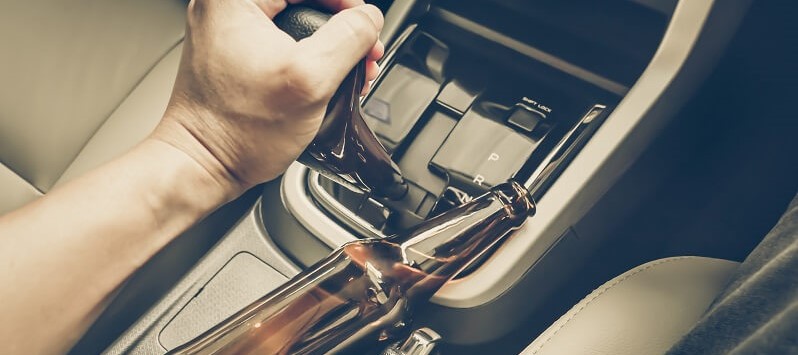A Fort Worth Crash: Know The Cause And Procedures
You know how overwhelming it can be if you’ve been in a car accident involving another vehicle. You may feel scared and confused, not knowing what to do. Fortunately, you don’t have to go through this alone. From working with police officers at the scene of the accident to filing a claim for damages, here’s what you need to know about being involved in a Fort Worth crash.

The Aftermath Of A Fort Worth Crash
The traumatizing and demanding experience of being involved in a Fort Worth crash can be devastating. As you drive along, perhaps even humming your favorite tune, suddenly, your car starts spinning, and you lose control. Your life flashes before your eyes, and fears paralyze you. The incident leaves you physically, emotionally, and mentally traumatized. You can barely drive your car, let alone sit in the backseat.
That’s only one of the several potential outcomes of a car accident, and it’s one of the better. There are frequent fatalities and total property losses. In addition to coping with personal emotional and mental challenges, dealing with law enforcement, court cases, and insurance claims is part of the aftermath of an accident.
Common Car Crash Causes
According to the Texas Department of Transportation; there were 15,764 serious car crashes in Texas in 2021. Naturally, car accidents happen under different circumstances. They also vary in severity with various degrees of resulting damage. There are other causes for these car crashes, and here’s what.
Speeding
One of the significant factors contributing to car accidents in Texas is speeding. Driving at a high pace reduces the time the motorist has to process information and respond to roadside events. In a split second, calamity might strike with only one false move. Speeding and the harm it causes are significant factors in many personal injury claims. High-speed collisions can result in fractures, brain damage, whiplash, paralysis, and even death.
Distracted Driving
Texas law prohibits texting and driving. Cell phone use is completely banned in several cities. In some situations, such as when playing music or performing other things that don’t require complete concentration, using a phone while driving is legal. Calling is also appropriate to report an accident or get assistance immediately. Cell phone use is not the only distraction factor in distracted driving. Eating, switching the music, or even getting into a heated argument with a passenger are further distractions for drivers.
Aggressive Driving
Aggressive driving is more likely to occur when a person is hurried or furious. Tailgating, running red lights, making abrupt braking, and lane changes without signaling are a few examples of aggressive driving behavior. These are frequently done to “punish” drivers or annoy other people. If a crash occurs due to this unpredictable conduct, injuries or deaths may result.
Age
A person’s age is also crucial in determining the likelihood of car crash accidents. Drivers are at a higher risk of being involved in a crash due to various factors such as physical and cognitive decline, lack of experience, and risk-taking behavior.
Elderly Drivers
Aging causes loss of muscle tone, vision, and hearing. Some elderly people get stiff joints and less flexibility, decreasing reaction times and reflexes that could prevent crashes. Many seniors insist on driving to maintain some semblance of normalcy but sadly, they pose safety risks on the road.
Teenage Drivers
Younger drivers are also at higher risk of being involved in a car crash. Their lack of experience and poor judgment can lead them to engage in more risk-taking behavior, such as unsafe driving.
Reckless Driving
Texting while driving, racing, and overspeeding are considered irresponsible and may be subject to criminal charges. In Texas, reckless driving is considered a traffic misdemeanor and subject to fines of up to $200 and 30 days in jail.
Drunk Driving
A driver under the influence of alcohol is likely to be involved in a car accident. Alcohol impairs a person’s ability to make sound judgments, react quickly, and control their muscles, making it difficult to drive safely. The more alcohol a person consumes, the greater their risk of crash involvement.
If the driver is below 21 years of age, he is subject to the “no drop” rule, which states that it is illegal to have any amount of alcohol in the system while driving a vehicle. In Texas, there is an implied consent rule where any person that operates a motor vehicle gives implied consent for police to test his alcohol level. This is, of course, if there is reasonable ground to think that the person is intoxicated.
Legal Repercussions For Car Crash Incidents
Whatever the reason for car accidents, the result is the same: injuries sustained, property damage or loss, or worst, loss of life. Several different legal repercussions can come from being involved in a car crash. These range from being sued by the other driver to being charged with a crime. Even if there isn’t any serious injury, leaving the scene of an accident is a crime in most states.
The other party may sue you if you are found at fault for the accident for medical bills, property damage, and lost wages. Many cases of car crashes result in civil suits. Liability is an essential issue in civil legal action. Who is at fault? The blame must be proven for compensation to be awarded.
How Can Fault Be Determined In A Car Accident?
 A fault may be established through evidence from
A fault may be established through evidence from
- Surveillance footage.
- Reports from law enforcement.
- Post-accident medical records.
- Accident reconstruction.
- Photographs and witnesses.
Injury claims are typically based on negligence in auto accidents, according to injury attorneys. This occurs when a person or people fail to use reasonable care or fail to act as a reasonably prudent person would in a comparable circumstance.
Under the law, four elements must be present to prove negligence.
- There was a legal duty from the defendant to the plaintiff.
- The defendant breached this particular legal duty by doing or not doing something.
- That the defendant’s action or inaction was the actual cause of the death or injury.
- The action or inaction of the defendant caused the plaintiff to incur damages in the form of medical bills, lost income, and even the suffering resulting from the incident.
Standards Used To Weigh Negligence
Contributory Negligence
The element of contributory negligence is considered a harsh standard. It means that if the injured party is just 1% at fault in an accident, he no longer qualifies to recover damages from the defendant.
Comparative Negligence
The court assigns a percentage of fault to each party based on the circumstances of the case. The injured party is 30% at fault, and the individual can only recover up to 70% of the damages. The state of Texas uses the comparative negligence standard but with a slight modification. There is a “51% bar” rule where if the injured person is more than 50% responsible for the accident, he can no longer claim damages.
Criminal Aspect In A Car Crash In Texas
People involved in a car crash would also do well to know that leaving the scene of the accident will make matters worse for them from a legal standpoint. Fleeing the scene is a hit-and-run and results in criminal charges.
There are a few examples where the driver may be exempt from criminal liability in a hit-and-run:
- If the driver was responding to an emergency, like if he was hurrying to the hospital and in his haste got into an accident.
- When the driver was drugged without his knowledge and became involuntarily intoxicated, resulting in a car accident.
- If the driver had no idea or was unaware that an accident or injury was caused.
While a DWI car crash is similar to other car accidents involving the same type of injuries and damage, it is different because proof of a DWI is automatically considered negligence. There is no need to prove the four elements as discussed above. The injured person only has to show that the defendant caused the damage done.
Punitive Damages
 Another thing that makes a DWI car crash different from other types is that the injured person may claim punitive damages. Punitive damages are applied when the defendant acted with intent or gross negligence. Drinking and driving are considered gross negligence. Punitive damages are in place to punish the drunk driver and discourage others from engaging in the behavior.
Another thing that makes a DWI car crash different from other types is that the injured person may claim punitive damages. Punitive damages are applied when the defendant acted with intent or gross negligence. Drinking and driving are considered gross negligence. Punitive damages are in place to punish the drunk driver and discourage others from engaging in the behavior.
Why Hire A Legal Practitioner From The Medlin Law Firm?
There are many good reasons to hire an experienced and knowledgeable legal practitioner if you are involved in a Fort Worth crash.
- Your attorney can navigate the complex legal system and protect your rights.
- An experienced attorney will know how to investigate your case and gather evidence to support your claim.
- A skilled lawyer will ensure you receive the compensation you deserve for your injuries and damages.
- Having an experienced advocate on your side will give you peace of mind during what is likely to be a stressful time.
When a person is involved in a car crash with criminal liability, such as a DWI, reckless driving, or hit-and-run, an experienced criminal defense lawyer is recommended. A DWI lawyer from the Medlin Law Firm who understands illegal crash cases is the best for handling them.
To learn more about how to organize a solid defense against criminal charges, contact our office today at (682) 204-4066. We offer services for clients throughout Texas, including Fort Worth, Dallas, Weatherford, Arlington, North Richland Hills, Grapevine, Flower Mound, Haltom City, Grand Prairie, South Lake, Keller, Aledo, Irving, Bedford & Euless.
(682) 204-4066 We cannot receive pictures via text so please send those via email or hand deliver to our office.
(682) 204-4066 No podemos recibir imágenes por mensaje de texto, así que envíelas por correo electrónico o entréguelas personalmente en nuestra oficina.







